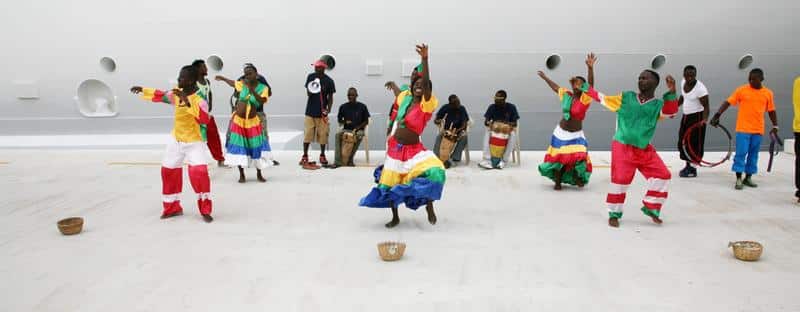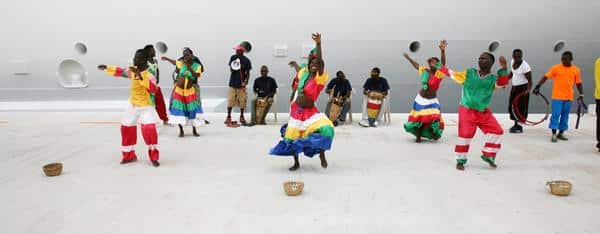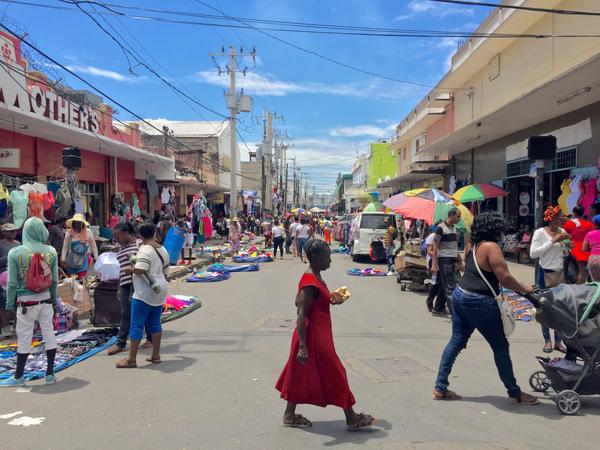What Language Do We Speak in Jamaica?

“Wah gwaan?” “Irie!” The rhythmic Jamaican language hits you as soon as you touchdown on the island. If you’re like most tourists, your initial reaction is a look of confusion, as if you are hearing a foreign language. However, once you get accustomed to the thick accent, you’ll find it’s just English mixed with some Caribbean flair!
Mek wi chat about what language we speak in Jamaica and why you’ll have no problem talking to locals during your Jamaica trip.
Languages Spoken in Jamaica


Jamaica is a bilingual country, with most of the population speaking two languages. The main languages you’ll hear are English and Jamaican Patois (or Patwa). Each of these languages reflects the island’s history and helps give us a sense of identity.
English
English is the official language of Jamaica. Our standard English is primarily based on British English because of the island’s history.
Spain was the first European nation to conquer the island of Jamaica during the 16th-century Caribbean explorations by Christopher Columbus. However, the British arrived in 1655 to capture the island and effectively eliminated all presence of Spain within five years, including the language, which never took root.
The British occupied Jamaica until gaining independence in 1962. With English long rooted in the island’s heritage for the past few centuries, it remained the dominant language and was established as the official language even after independence.
Nearly the entire population in Jamaica speaks English. It’s the commonly spoken language in schools, business, and tourism. It’s also the root of other languages spoken in Jamaica.
Jamaican Patois (Jamaican Creole)


Jamaica showcases its melting pot through the Jamaican Patois language, also called Jamaican Patwah or Jamaican Creole. It’s an English-based creole language developed during Jamaica’s colonial past when people from diverse cultures were forced to live and work together. It mixes English and the Arawak native language with Spanish, French, Portuguese, and African influences.
Jamaica was a key island during the Atlantic Slave Trade. More than one million Africans were transported to the island to work as enslaved people. These enslaved people worked and interacted with people of Irish, Scottish, Indian, Chinese, and indigenous Taino nationalities, who were also present on the island during this period as indentured servants and laborers.
Jamaica Patois is the result of these different nationalities attempting to communicate with each other using broken English words and parts of their native languages to form a “pidgin” language.
Over time, this unique blend of languages developed into the Jamaica Patois we use today. It’s a sense of pride in Jamaican culture, symbolizing the resilience of the diverse groups who created it. It’s the unofficial language but widely spoken by most Jamaicans. Jamaican Creole has gained more international recognition in recent years through its use in reggae music, dancehall, poetry, film, and other media.
Less Common Languages Spoken in Jamaica


Not all conversations on the island are in English or Jamaican Patois. Although these are the main languages spoken, various subcultures on the island have their own languages and Jamaican dialects. Where you are on the island can affect the language you hear spoken by the locals. These are a couple of languages that aren’t widely spoken.
Kromanti
Kromanti is an endangered language in Jamaica. It’s another language rooted in Jamaica’s slave past and preserved today by the descendants it was passed down to. It’s derived from the Akan, a popular West African language.
Two hours east of Ocho Rios in the highlands of Jamaica are towns like Moore Town and Charles Town that were settled by runaway enslaved peoples called Maroons. They established their own independent communities and, along with it, their own language to communicate. The language of Kromanti remains within these tiny communities where mainly the elders can speak it fluently. It’s still used today for spiritual and ceremonious purposes.
Iyaric/Dread Talk
If you find yourself immersed in Rastafarian communities during your trip to Jamaica, you’ll be exposed to the Iyari language (also called Dread Talk). Rastafarians created it as a modified version of English to reflect the beliefs of their faith.
The Iyaric language sounds close to the broken English style of Jamaican Patois. It is unique because many words are replaced to remove negative connotations while promoting unity and positivity. For example, the language emphasizes “I” and uses it to denote “me” and “we.” The letter also replaces letters but gives the same meaning. For example, “inity” and “i-sire” replace “unity” and “desire,” respectively.
Polyglots
Most of the Jamaican population are bilingual, but a small percentage speak more than two languages. Polygots refer to people who speak multiple languages, and only less than 1% of Jamaicans can speak three or more. Some alternative languages Jamaican polygons speak include Spanish, French, Japanese, Chinese, and more.
There are several reasons for the presence of these languages in Jamaica. Jamaica has a small international population with Indian and Chinese communities that speak their native languages. Schools often include Spanish and French in their curriculums. Other reasons include international exposure through work, travel, and media.
International visitors can find tours offered in various languages.
Learn to Speak Like a Jamaican
Are you ready to speak Jamaican Creole? Here’s a quick look at common Jamaican Patois words, phrases, and slang you’ll encounter during your vacation:
- “Wah Gwann?” – what’s going on?
- “Yah mon!” – of course!
- “Irie” – everything is alright
- “Weh yuh deh” – Where are you?
- “Mi soon come” – I’ll be there soon
- “Yuh dun know” – you already know
- “Nah worry yuhself” – don’t worry about it
- “Bless up” – goodbye/have a nice day
- “Respect” – Thank you
Save this blog as a reference to practice while on the island!
A Luxurious Stay with Jamaican Hospitality
Mi hope yuh enjoy yuh stay in Jamaica. Experience the island’s warming hospitality at our Villa Paradiso vacation rental. You’ll have plenty of time to speak patois and Jamaican English while enjoying onsite services by your private chef, housekeeping, butler, driver, and more. Tek it easy and book your stay with us today!




Latest Comments